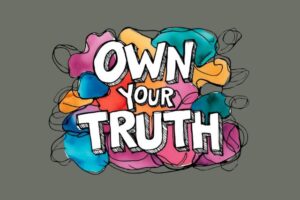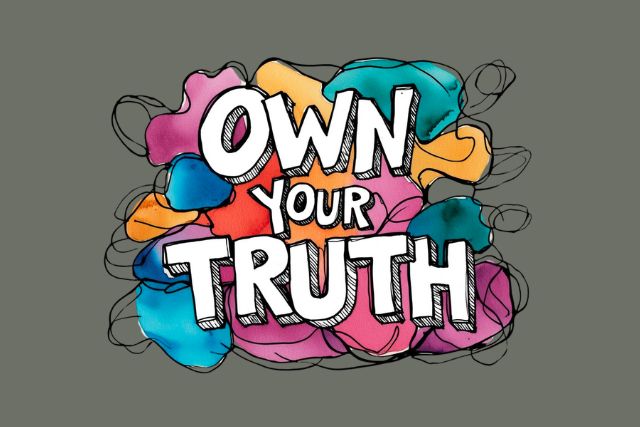Be Bold Everyday: Embrace Courage to Transform Your Life
“Every day courage has few witnesses. But yours is no less noble because no drum beats for you and no crowds shout your name.” – Robert Louis Stevenson
Be bold everyday, and discover the power that lies within you. Courage isn’t just about performing grand acts for external recognition; it’s a quality we should cultivate daily to navigate the complexities of life. Be bold everyday—even in the small moments, as this is where true transformation begins. It gives us the strength to face the challenges life throws at us with grace, and it fuels the drive to chase our dreams with relentless passion.
Courage isn’t just for the extraordinary moments—it’s for every day. Be bold everyday, whether you’re facing minor inconveniences or major obstacles. It’s an essential force in our lives, one that must become a natural part of our routine. When we embrace this kind of courage, we can overcome our fears, doubts, and obstacles, no matter how big or small they seem. Be bold everyday to face not only the visible struggles but also the invisible internal battles we often fight alone.
The greatest source of courage lies within us. When we tap into this inner strength, be bold everyday to confront the chaos that surrounds us. Whether the struggle is internal, external, or both, courage is the key to unlocking peace and clarity. Life can sometimes feel overwhelming with all the noise, doubts, and negativity, but be bold everyday to rise above the noise and find your peace. By trusting your instincts, you empower yourself to take control and move toward a life that’s true to you.
I have encountered many obstacles in my life, and each time, be bold everyday was the mantra that carried me through. In my darkest moments, I found strength in my courage, which helped me navigate fears, insecurities, and losses. Be bold everyday, and lean into the courage that comes from within, knowing that it will guide you through even the toughest challenges. Along with this inner courage, we are often supported by a higher power, reminding us that we are never truly alone. Trusting in that support is crucial in moments of difficulty.
Be bold everyday to face life’s unpredictability, the ups and downs, and the inevitable obstacles that will come your way. Sometimes, life forces us out of our comfort zones, and though it may feel uncomfortable, it’s pushing us toward growth. Be bold everyday to embrace these changes, as they are often the very experiences that lead us to success and serenity. Courage isn’t just a one-time thing—it’s an ongoing commitment to living a life that is authentic, brave, and full of possibilities.
When you be bold everyday, you take the first step toward living the life you were always meant to lead. With courage as your guide, there’s nothing you can’t overcome. Embrace it, and let it transform you, one brave step at a time.
Positive Psychology of Courage
Related to courage and positive psychology from famous psychologists, here are 10 quotes and brief analysis about courage or being courageous.
1. “Out of your vulnerabilities will come your strength”.
Sigmund Freud recognized that ‘confronting’ our inner demons and vulnerabilities can lead to personal growth and courage. He also acknowledged the importance of courage in ‘resolving’ inner conflicts and traumas. He concluded that courage was essential for psychological healing and personal growth. His work with patients demonstrated that those who confronted their fears and vulnerabilities with courage often found a path to better mental health. It is therefore, proven in the realm of positive psychology that acknowledging one’s weakness is a crucial step towards self-improvement.
2. “What a man can be, he must be.”
Abraham Maslow’s hierarchy of needs emphasizes ‘self-actualization’, where individuals strive to reach their fullest potential. He concluded that individuals who had the courage to pursue their unique potential and self-actualize were more likely to achieve personal success and fulfillment. Courage was vital for breaking free from conformity and realizing one’s true self. This pursuit of personal growth requires courage to overcome obstacles and self-doubt.
3. “The curious paradox is that when I accept myself just as I am, then I can change”.
Carl Rogers’ persona-centered therapy highlights the importance of ‘self-acceptance’ and the courage to be ‘one’s authentic-self’. He concluded that individuals who had the courage to embrace their true feelings and experiences would find greater psychological well-being and success in their personal lives and relationships. It signifies that courage comes from embracing your current state and using it as a foundation for positive change.
4. “Learned helplessness is the giving-up reaction, the quitting response that follows from the belief that whatever you do doesn’t matter.”
Martin Seligman’s work on learned helplessness suggests that people can become trapped in a cycle of negativity. However, in his remarkable work around positive psychology, he also highlighted the role of optimism and courage in overcoming adversity. He concluded that individuals who had the courage to maintain the optimistic outlook and take positive actions, even in the face of setbacks and traumas, were more likely to achieve success and well-being.
5. “Positivity opens us. It broadens our minds and builds our resourcefulness”.
Barbara Fredrickson’s broaden-and-build theory of positive emotions highlights how positive thinking can fuel courage by expanding one’s mindset and abilities for future success. She concluded that experiencing and expressing courage could lead to personal growth and expended possibilities in various life domains.
6. “People who believe they have the power to exercise some measure of control over their lives are healthier, more effective, and more successful.”
Albert Bandura’s self-efficacy theory emphasizes the importance of courage in believing the one’s abilities to achieve goals. He concluded that individuals with high self-efficiency, who had the courage to take on challenges and persist in the face of setbacks, were more likely to attain success. It is therefore, affirmed that having the courage to take control of your life is closely linked to self-efficiency and to achieve goals.
7. “Courage is like a muscle; it is strengthened by use”.
Karen Horney recognized that courage can be developed and strengthened through practice and psychotherapy. She concluded that individuals who had the courage to confront and work through their fears and anxieties would experience psychological growth and greater emotional well-being. Hence, this is one of the recommended techniques in Positive psychology that encourages individuals to exercise their courage regularly.
8. “The best moments in our lives are not the passive, receptive, relaxing times… the best moments usually occur when a person’s body and mind is stretched to its limits in a voluntary effort to accomplish something difficult and worthwhile.”
Mihaly Csikszentmihalyi’s concept of flow encourages us to embrace challenges and find courage in pushing our limits. He concluded that individuals who had the courage to immerse themselves in flow-inducing activities often experienced heightened creativity and success.
9. “When we are no longer able to change a situation, we are challenged to change ourselves.”
Viktor Frankl’s experiences in the Holocaust led him to believe in the transformative power of courage and inner strength during the difficult times. He concluded that individuals could find meaning and success in even the most challenging circumstances by having the courage to confront suffering and choose their responses.
10. “The opposite of courage in our society is not cowardice, it is conformity.”
Rollo May statement underscores the need for courage to step away from the crowd, think independently, and purpose one’s own path in life. He also realized courage as essential for breaking free from conformity and embracing one’s authentic self. He concluded that individuals who had the courage to take unique and non-conformist paths in life were more likely to find personal fulfillment and success.
Takeaway: Be Bold Everyday and Discover Your Inner Courage
Many of us face moments in life when we feel overwhelmed by challenges, and it’s easy to feel like we’re alone in those struggles. However, insights from famous psychologists show us that courage is often born from recognizing our vulnerabilities, embracing change, and pushing for personal growth—even when the road ahead is uncertain. Be bold everyday as you face life’s difficulties and know that you are not alone in your journey.
These psychologists emphasized that courage is essential for mental health, personal growth, and success. Be bold everyday by acknowledging your fears and choosing to act despite them. They identified courage as the driving force behind overcoming obstacles, embracing your true self, and achieving a sense of fulfillment and psychological well-being. Whether you’re navigating tough times or dealing with personal growth, be bold everyday to push through the fears that hold you back. Courage isn’t something only a select few possess; it’s within all of us, waiting to be discovered, especially in the face of adversity.
Be bold everyday—because every small act of courage builds up, making you stronger and more resilient. Courage has the power to change not just your day, but your entire life. The moments when you choose courage over fear can be transformative, so remember: be bold everyday in your journey of self-discovery.
Now is the time to act—embrace your inner courage and make the choice to be bold everyday. When you do, you open yourself up to endless possibilities, and life begins to shift in ways you may not have expected. Trust yourself, take that leap, and remember that the courage you seek is already inside you, waiting to be awakened. Be bold everyday, and watch how your life changes for the better.
Embrace courage, step forward, and take control of your journey. Be bold everyday and unlock the powerful potential within you.
















